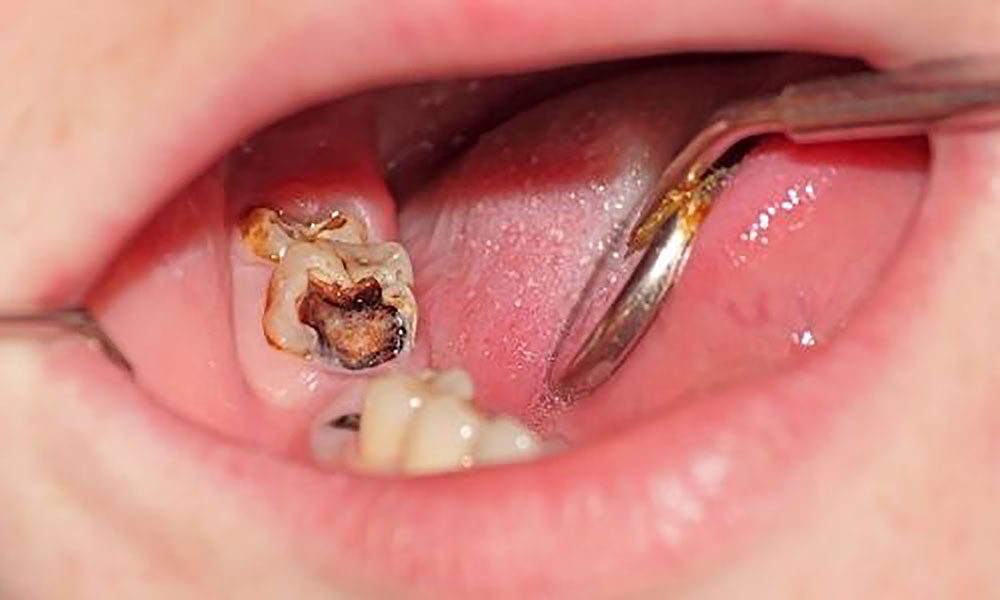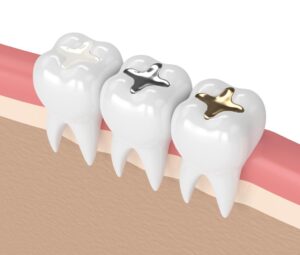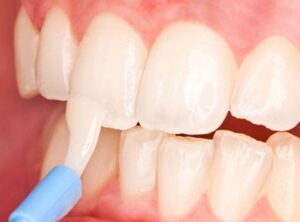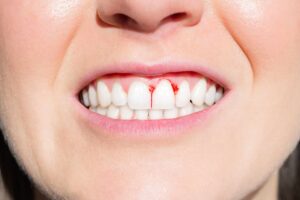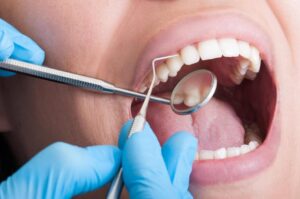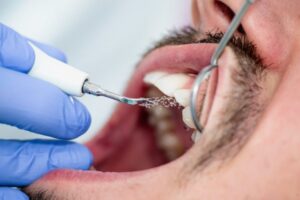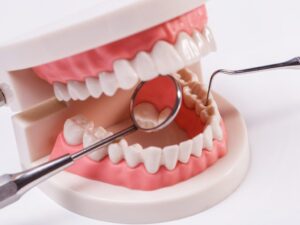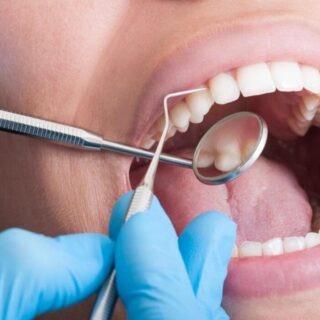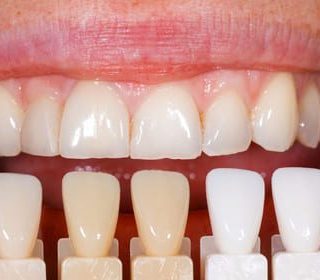Toothache is one of the most common dental problems people experience, and it can range from mild discomfort to severe, throbbing pain that affects daily life. While occasional sensitivity may seem harmless, persistent toothache often signals an underlying issue such as cavities, gum disease, or infection. Ignoring the pain may allow the problem to worsen, leading to more serious complications that require extensive treatment. Understanding the main cause of toothache, symptoms, and available solutions is the first step toward protecting your oral health.
In this blog, we’ll explore the most common reasons behind toothaches, how dentists diagnose them, and what you can do to find effective relief and prevent future problems.
7 common causes of toothache
- Cavities (Tooth Decay): When enamel erodes and tiny holes appear in the teeth, sensitive layers are exposed, which can be painful, especially when eating hot, cold, or sweet foods.
- Gum Infection: Swelling, tenderness, and abscesses brought on by bacterial accumulation around the gums can result in severe tooth pain.
- Sinus Problems: Infections or congestion in the sinuses can create pressure that radiates to the upper teeth, making it feel like a toothache.
- Impacted Wisdom Teeth: If your wisdom teeth don’t grow in the right way, they can get stuck under your gums or push against your other teeth. This often causes pain, jaw stiffness, and swelling.
- Misaligned Bite: When teeth don’t fit together properly, they place extra stress on certain areas. Over time, this can make your teeth feel sore, cause sensitivity, or even wear them down.
- Teeth Grinding (Bruxism): Consistent clenching or grinding can erode tooth enamel and strain the jaw, which frequently results in tooth and facial pain.
- Damaged Fillings or Abscessed Tooth: A broken filling or an untreated infection inside a tooth can trigger intense, throbbing pain, sometimes accompanied by swelling or pus.
Typical symptoms that come with toothache
- Sensitivity to hot or cold foods and drinks
- Mild swelling around the gums
- Headache linked to dental pain
- Discomfort when biting or chewing
- Pain that comes and goes
How is toothache diagnosed?
The first thing your dentist will do to figure out the cause of toothache is a thorough oral examination. During the visit, they’ll carefully examine your teeth, gums, and the tissues around them, and they’ll also ask you questions about the symptoms you experience. In many cases, a dental X-ray may be taken to look beneath the surface. This allows the dentist to spot hidden issues like cavities between teeth, abscesses, impacted teeth, or bone loss around the roots.
By combining a clinical exam with diagnostic tools, your dentist can figure out the main reasons for teeth pain and suggest the best treatment for you.
Dental treatments for toothache relief
The right treatment for a toothache depends on the underlying cause and severity.
Common treatment options include:
- Toothache Medicine: over-the-counter pain relievers to address discomfort as you wait to see your dentist. Your dentist may prescribe antibiotics if there is an infection, which will only provide temporary relief until the primary issue is treated.
- Dental Fillings: Among the most common tooth cavity treatments is a dental filling, which is used to repair small cavities or minor fractures effectively.
- Dental Crowns: For larger cavities or cracks, a crown may be placed to cover and strengthen the tooth.
- Root Canal Therapy: If the decay or bacteria has managed to reach the pulp, a root canal treatment can help. This procedure removes the infected part, thoroughly cleans and disinfects the inside of the tooth, and seals it, often followed by a crown for protection.
- Tooth Extraction: Sometimes, if a tooth is badly damaged and can’t be fixed, the only option is to have it removed.
- Gum Disease Treatment: If toothache is linked to gum problems, treatment may include deep cleaning, medication, or specialized periodontal therapy to restore gum health.
Simple at-home remedies for toothache relief
While professional dental care is the only way to treat the root cause of toothache, certain home remedies can help ease discomfort until you see your dentist:
- Salt Water Rinse: This method cleans the affected area, reduces bacteria, and relieves irritation.
- Clove Oil or Chewing Cloves: When applied gently to the sore area, clove oil has a natural numbing effect that can offer temporary relief.
- Cold Compress or Ice Pack: Placing an ice pack on the outside of your cheek can help reduce swelling and numb the pain.
- Eat Soft Foods: Choosing soft, non-crunchy foods can prevent further irritation and make chewing more comfortable.
Tip to prevent sudden toothache and jaw pain
- Schedule regular dental check-ups: Professional cleanings and early detection can stop small issues from becoming painful problems.
- Build a protective daily routine: Regular brushing, flossing, and fluoride rinses don’t just freshen your breath, they protect against the hidden causes of sudden tooth pain.
- Avoid very hard or sticky foods: Biting ice, hard candies, or chewy sweets can crack teeth or loosen fillings.
- Wear a mouthguard if you grind your teeth: Night guards or custom dental appliances protect against jaw pain and enamel wear caused by bruxism.
- Maintain a balanced diet: Limit sugary snacks and drinks that promote decay, and eat calcium-rich foods for stronger teeth.
- Stay hydrated: Drinking plenty of water helps wash away bacteria and keep your mouth fresh.
Toothache emergencies: warning signs you shouldn’t ignore
- Persistent throbbing in tooth that doesn’t ease
- Severe swelling of the jaw or face
- Fever or feeling generally unwell
- Pus or foul-tasting discharge from the tooth or gums
- Difficulty opening the mouth, swallowing, or chewing
- A cracked or broken tooth with sharp pain
Complications of untreated toothache
If a toothache is not addressed, a small problem can become a much larger problem. Some possible problems include:
- Dental abscess: This happens when an infection creates a pus-filled pocket. It often leads to swelling and intense pain.
- Tooth loss: Untreated decay or infection may damage the tooth beyond saving.
- Spread of infection: The bacteria from an abscess can potentially spread to the jaw, face, and in serious cases, even get into the bloodstream.
- Jawbone damage: A long-lasting infection can weaken the bone that supports the tooth.
El-Shenawy Dental Centers: comprehensive toothache solutions
At El-Shenawy Dental Centers, we know every toothache has a cause and the first step of lasting relief is finding that cause. That’s why our dentists begin with a thorough examination to identify the root cause of toothache.
Once the problem is identified, we provide an individualized treatment plan designed to fit your needs. From simple fillings, crowns, advanced root canal therapy, or gum care, our team provides all solutions under one roof.
With our team’s support, you not only overcome today’s toothache but also gain long-term confidence in your oral health.
Schedule your visit today to find lasting relief
Frequently asked questions
-
Will a toothache heal without treatment?
No, a toothache typically won’t go away on its own. Although the pain may ease temporarily, the underlying issue often remains and can worsen over time.
-
What is the quickest way to relieve toothache pain?
Over-the-counter pain relievers or a cold compress can help temporarily, but only a dentist can provide lasting relief.



